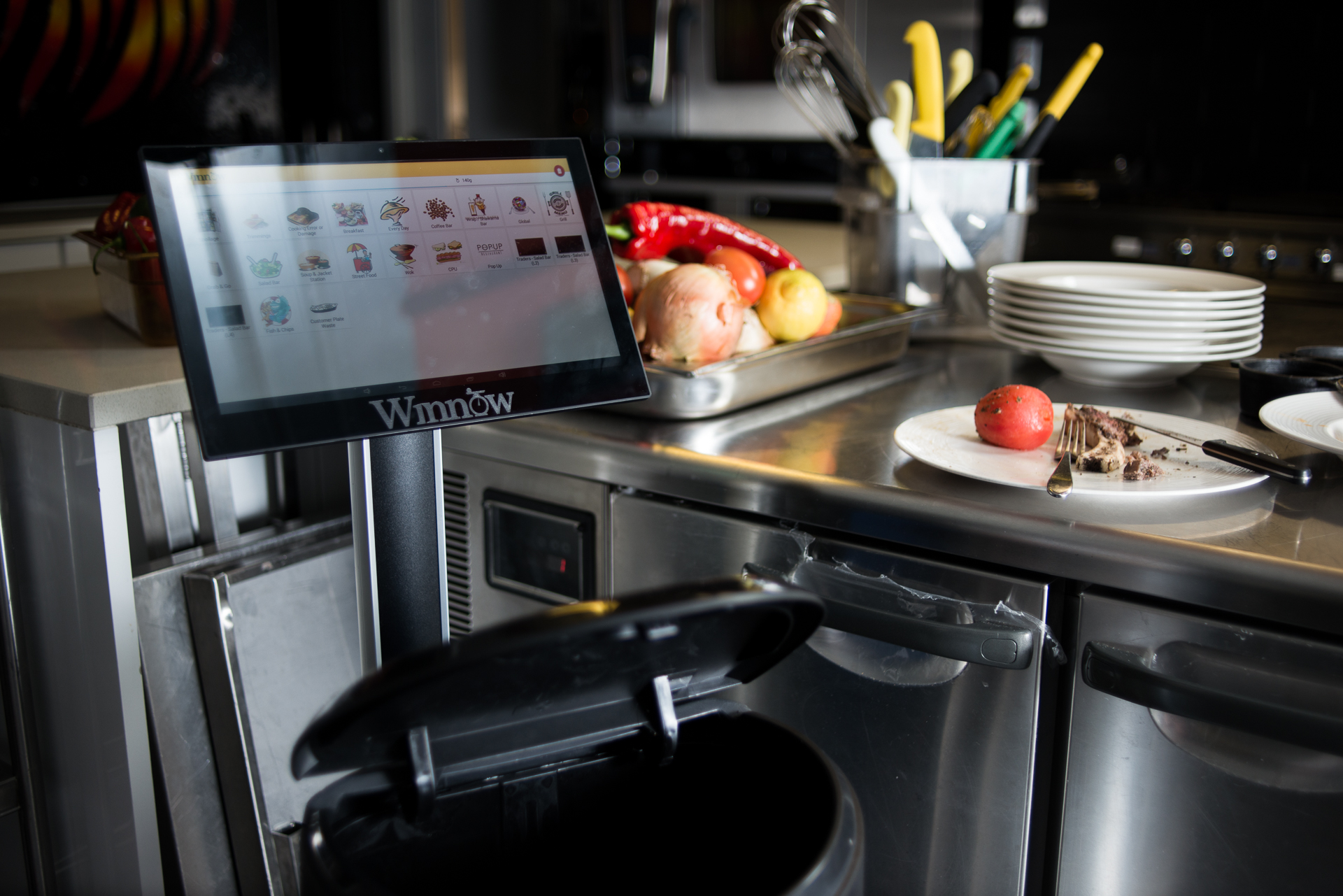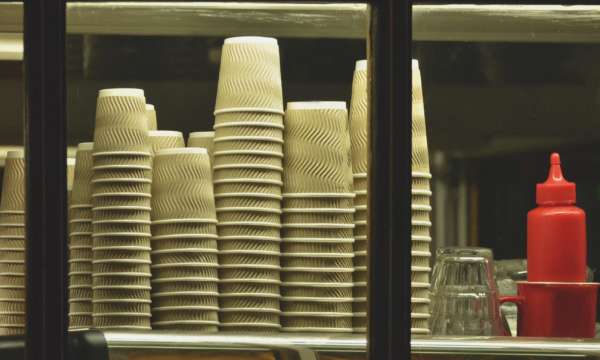Overview
The Need - each year an estimated USD 100 billion worth of food is thrown away by the hospitality industry, mainly due to overproduction. There are huge benefits in developing tools that help address this and therefore reduce the many issues associated with food waste.
The Solution - Winnow has devised a simple way of collecting data on food waste in commercial kitchens, leading to better decision making in food preparation and increasing awareness in kitchen staff.
What makes this smarter - Winnow analytics correlates food waste to sales directly connecting behaviour changes to increased profits.
The result - restaurants that use this system have cut food waste by between 40 - 70%, leading to increases profit margins by 50% or more as well as reducing carbon emissions
Improved productivity can solve 30% of resource challenge
Shortly before Marc Zornes set up Winnow in 2013, he co-authored a report (Resource Revolution: Meeting the World’s Energy, Materials, Food, and Water Needs) which explored the immense challenge of providing resources to a rapidly expanding world population.
One of the most powerful findings from the research was that a century’s worth of price decline in key commodities (energy, food, agricultural materials, metals), had been completely wiped out by a steep rise in prices over just one decade (see graph). The twin effects of environmental deterioration and higher consumption meant that by 2010, the supply of these key resources had entered a volatile period, characterised by high prices and unpredictability*.
The report put forward two approaches to solving this resource challenge. Either to expand the supply of resources available; or to use our current resources in a more effective and productive way. The first approach has many political and practical difficulties, for example 'supply chain bottlenecks', due to most unused arable land being located in countries with poor infrastructure. The report concluded that the resource productivity approach is more viable, could satisfy 30% of demand by 2030 and at the same time generate up to 25 million new jobs.
One of the highest impact opportunities related to ‘reducing food waste’ with an estimated USD 252 billion of resource savings by 2030. Due to the complexity of the global food system however, realising this potential poses a difficult challenge. The report suggested that digital technology could play an important role:
“As in the building sector, new IT applications may make it possible to track inefficiencies across the (food) supply chain, enabling much better resource monitoring and management”
Not long after Resource Revolutions was published, Marc left McKinsey and with his old MBA colleague Kevin Duffy set up Winnow, a software as a service (SaaS) company aimed at unlocking some of the value from this enormous potential.
Money in the bin, carbon in the air
Up to a third of all food that is produced in the world is lost or wasted, with an estimated value of USD1 trillion discarded each year. Furthermore, greenhouse gas emanating from decomposition of post-consumer organic waste is responsible for 5% of global emissions.
Winnow has chosen to focus on the hospitality industry, a challenging business sector due its small profit margins, which wastes about USD 100 billion each year. In recent years things have got more difficult, due to competition from new emerging business models (e.g. Uber Eats, Deliveroo) and rising food prices estimated at +7% since 2016 (UN Food agency). This combination of factors makes the hospitality industry very receptive to ways of becoming more efficient.
This is where Winnow comes in, offering a simple and novel technology package that helps commercial kitchens manage their food resources in a smarter way.
If you can’t measure it, you can’t manage it
Winnow is particularly interested in businesses where food is prepared in advance, for example hotels with daily buffets and universities or companies with staff canteens. In these kinds of catering operations, it was found that over 70% of food waste by value is lost before it reaches the customer’s plate, so there is huge potential in just cutting down overproduction.
To help tackle this, Winnow has developed a simple system, The Winnow Waste Monitor, comprising a weighing scale and a data recording terminal. Each time a kitchen employee discards food into a bin, the scale under the bin records the weight and the employee is prompted to enter basic information about the type and origin of the food waste (e.g. lasagne, lunch buffet) using large pre-programmed buttons for speed and practicality.
The benefits of the Winnow Waste monitor are realised immediately through increased staff awareness, particularly as the costs of discarded food is displayed by the terminal after each ‘transaction’. This is possible as the system assigns cost/kg for every food type or dish offered on the menu.
However, the true value of the system lies in the analytics generated on a daily and weekly intervals and, for larger companies, across multiple sites. Winnow’s revenue model is based on sending out these regular reports, for which it charges a monthly service fee tiered according to the size (in terms of total food costs) of the kitchen.
In the first few weeks of the analysis period, clients are requested to collect data without modifying behaviour, to establish a baseline for future comparison. The key outputs are a function of the weight of the food type and the timestamp when this weight was recorded. To add more meaning to this basic measurement, Winnow requests information on food sales during the same time period, so that waste can be normalised against sales, creating a more powerful metric that can be related to ROI and profits. The analysis also provides other useful estimates including the volume of avoided carbon emissions.
From simple insights, profits grow
The first insight experienced by many customers during the baselining period is that food waste is typically underestimated by a factor of two. This leads to imprecise forecasting and financial planning that use profit and loss accounting methods that are underpinned by this data.
Once the baseline is established and the analysis period begins, a typical customer can expect to reduce waste by 40 - 70%, with an average reduction of about 50%. Low margins in the industry mean that this scale of reduction could lead to a doubling of profits in many businesses. Today, Winnow is installed or scheduled in over 1,000 kitchens saving its customers around GBP 9m every year.
According to David Jackson, Head of Marketing for Winnow, one of the most important benefits of collecting accurate data is that “it gives businesses the confidence to go out and make public statements about reducing food waste”. For example, the technology has given a huge company like IKEA, which serves 650 million meals each year, the quantitative basis to launch and monitor a campaign that aims to reduce food waste by 50% by the end of 2020.
The unexpected bonus? About 50% of workers involved in food production in IKEA have been inspired to reduce food waste when they return home.
In the near future, Winnow plans to further develop the technology by improving analytics and reporting and setting up a network for its clients allowing the sharing of insights and knowledge. Once established, this network could be opened up to external stakeholders such as biorefineries and other enterprises that require organic feedstock. If this happens, then Winnow’s enabling technology could lead not only to more effective resources use within companies, but across the system as a whole.
(*Note: this graph was a moment in time when companies and governments realised that cheap energy and materials could not be taken for granted anymore, and so new business models needed to be considered. Since then prices have declined and volatility has reduced.)
Company information
Founded in 2013 by Marc Zornes and Kevin Duffy
HQ in London with offices in Dubai, Shanghai and Singapore
50 staff
Operates in 30 countries, translated into 20 languages
Raised USD 7.4 million in recent funding round, key investor CE100 member Circularity Capital
Further material: Saving 500,000 meals at Ikea; Video explainer, case studies.









